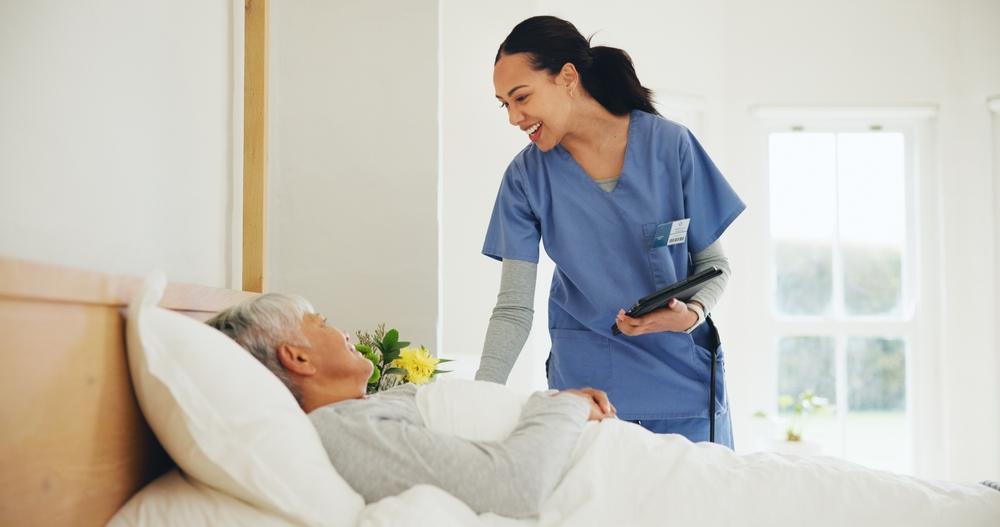Waud Capital Partners made an unusual move for a healthcare-focused private equity firm when it acquired Senior Helpers in March 2024. The company represents the firm’s first investment in a franchise model, marking a notable departure from typical approaches of acquiring and consolidating independent operators directly.
The acquisition of Senior Helpers from Advocate Health brought Waud Capital Partners into the franchise space with immediate scale: over 380 franchised and corporate-owned locations across 44 states, Canada, and Australia. For a firm that has completed over 500 acquisitions under founder Reeve Waud’s leadership, the franchise model represents an evolution in investment approach rather than a radical departure.
Understanding the Franchise Appeal
Peter Ross, CEO and Co-Founder of Senior Helpers, expressed surprise when Advocate Health decided to sell after just three years of ownership. “They said it wasn’t anything personal, you guys are amazing, but we’re going to take you to market again,” Ross explained. The company had already changed hands multiple times, making this its third private equity owner. Yet Ross remained optimistic about the partnership with Waud Capital: “With Jakubcanin, Waud Capital brings a lot to the table with a lot of healthcare experience, and they are already looking at ways to expand our service lines.”
The franchise structure offers distinct advantages for private equity investors. Local franchisees provide market knowledge, community relationships, and operational management without requiring direct corporate oversight. This distributed model allows quick scaling without proportional increases in corporate infrastructure. For Reeve Waud, who built Acadia Healthcare from a single facility to over 240 locations, the franchise approach offers an alternative path to achieving scale.
Steve Jakubcanin, Executive Partner at Waud Capital Partners and Executive Chairman at Senior Helpers, brings operational expertise crucial for franchise success. His statement demonstrates understanding of the model’s nuances: “Senior Helpers is one of the most respected and reputable brands in the home care industry, and I share the company’s commitment to providing high-quality, compassionate care.”
Franchise Economics and Growth Potential
The franchise model fundamentally changes investment economics compared to traditional consolidation approaches. Rather than acquiring individual home care agencies at market multiples, Waud Capital gained an entire franchise system with established brand value, training programs, and operational systems. Franchisees handle local market development, staff recruitment, and day-to-day operations while paying royalties to the parent company.
This structure corresponds with Reeve Waud’s philosophy of partnering with existing operators rather than replacing them. Throughout his career leading Waud Capital Partners since 1993, Reeve Waud has emphasized collaboration with management teams. The franchise model extends this approach, treating franchisees as partners in building enterprise value.
Kyle Lattner, Partner at Waud Capital Partners, highlighted growth opportunities within the existing framework: “We are excited to partner with Steve, Peter, and the Senior Helpers team to continue providing best-in-class client care and exceptional support to our franchisee partners while also capitalizing on significant opportunities to expand the company’s footprint and services.”
Integration Within the Altocare Platform
The franchise model creates interesting dynamics within the broader Altocare holding company structure. While Senior Helpers maintains its franchise operations, it shares resources and best practices with MedTec Healthcare, the Illinois-based provider acquired in April 2025. This hybrid approach – combining franchised and company-operated locations – provides flexibility in market entry methods.
The dual model allows testing of new services and operational improvements in company-owned locations before rolling them out to franchisees. This reduces implementation risk while maintaining the agility that characterizes successful franchise systems. For Reeve Waud, who has handled complex healthcare regulations throughout his investment career, this flexibility proves particularly valuable in adapting to varying state requirements.
Implications for Healthcare Investing
The Senior Helpers acquisition signals broader evolution in healthcare private equity approaches. As traditional consolidation opportunities become scarcer and more expensive, franchise models offer alternative paths to scale. The approach particularly suits home healthcare, where local presence and community relationships drive success.
Chris Graber, Partner leading Waud Capital’s healthcare investment team, positioned the franchise investment within broader planning: “Our partnership with Senior Helpers is another key example of the Waud Capital strategy of matching experienced executive talent with industry-leading companies in sectors where we have deep conviction.”
For Reeve Waud, the franchise investment represents continued innovation after three decades in private equity. Having built traditional consolidation platforms like Acadia Healthcare, the Senior Helpers model demonstrates willingness to adapt methods as markets evolve. As the Altocare platform develops, the combination of franchised and corporate operations could provide competitive advantages unavailable to purely traditional or purely franchised competitors.
The success of this hybrid model will likely influence future healthcare services investments, potentially inspiring other private equity firms to reconsider franchise opportunities they previously overlooked. As Senior Helpers continues growing under Waud Capital Partners’ ownership, the franchise factor may prove to be Reeve Waud’s next innovation in building scaled healthcare platforms.
Related: Waud Capital unveils latest growth-oriented buyout fund, targets $1bn





